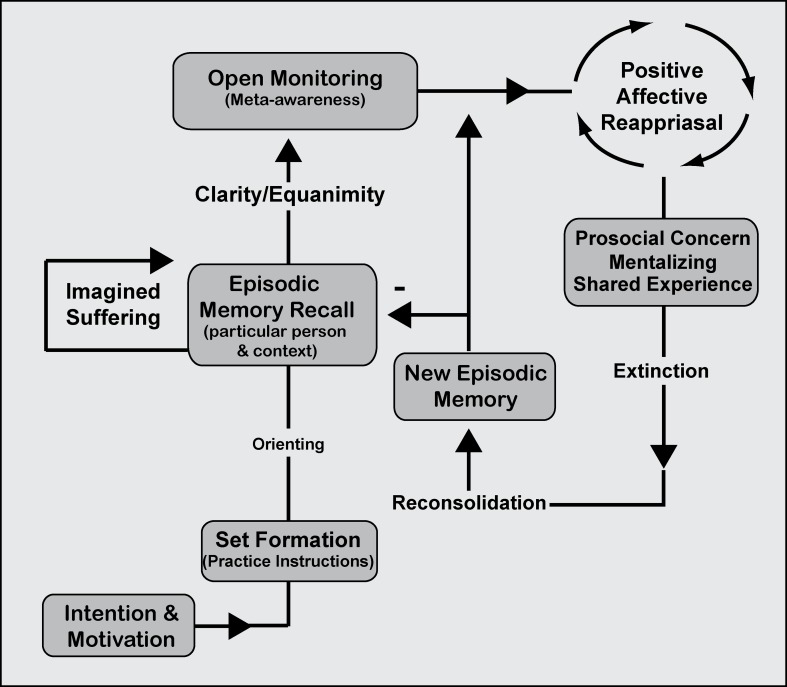Figure 5.
Mindfulness process model. Ethical-enhancement (EE) practice. Intention is formed along with motivation to practice before an executive “set” is created within the working memory system in order to implement and maintain practice instructions. Focused attentional networks are recruited for orienting toward sustained episodic memory recall involving mentalizing and shared experience. OM practice is described to supplement EE practice facilitating awareness of any modality of experience that arises. The processes are proposed to be the same across ethical styles of practice that require imagined suffering or a particular declarative memory [of someone or something]. Mentalizing one's own or others' suffering continues recurrently as part of sustained episodic memory recall. With clarity and equanimity for affective reactivity, OM practice allows the practitioner to remain mindfully aware of difficult emotions while the declarative (episodic) memory is positively reappraised. Negative associations are extinguished and reconsolidated into more adaptive or positive memories using prosocial/empathic concern for the object of meditation. Continuous reappraisal along with prosocial concern is thought to enhance exposure, extinction, and reconsolidation processes such that new episodic memories are laid down and inhibit older maladaptive forms of the memory.

